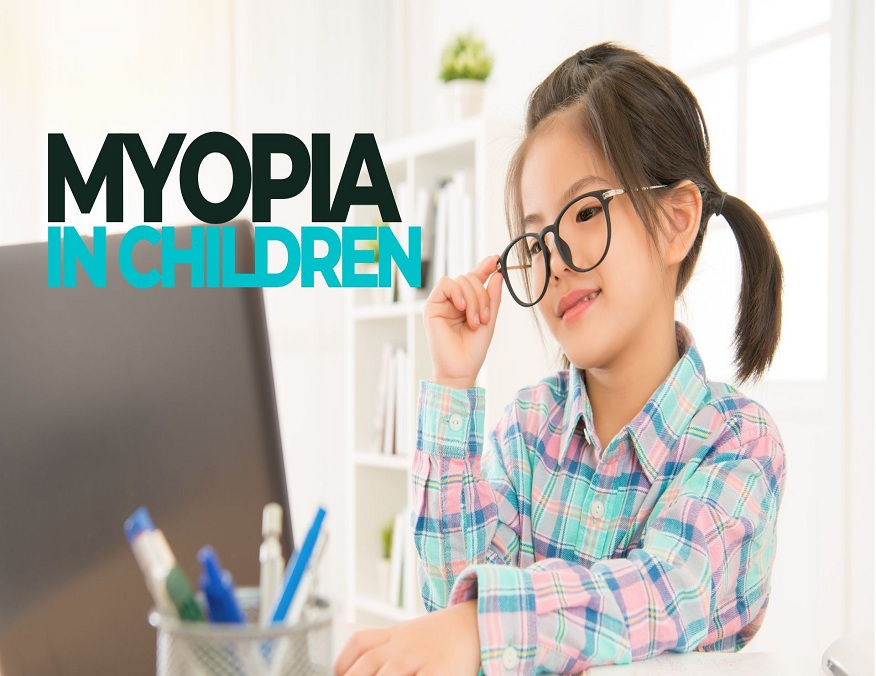What To Know About Myopia in Children and How You Can Manage It
Myopia in toddlers and infants can be a cause for concern regarding visual development and a sign that general health conditions should be investigated. Priority is given to ensuring normal visual development, and myopia control treatments typically begin as a child approaches school age.
What is the definition of progressive myopia in young children?
Progressive myopia occurs when a person’s nearsightedness progressively deteriorates over time. This can result in blurred vision whenever their prescription needs to be updated. In addition, babies and toddlers are less aware of how distinct the world should appear, making it more difficult to detect myopia progression.
Higher myopia increases the risk of myopia-related eye health issues such as retinal detachment, glaucoma, and myopic macular degeneration in later life. The good news is that research indicates progressive myopia can be managed, and measures can be taken to slow its progression. However, most of this research does not apply to children younger than 4 to 6 years old.
How can I assist my infant or adolescent with myopia?
Myopia can be associated with other eye health and general health syndromes in children younger than school age, particularly if it is severe. This frequently necessitates the participation of eye care professionals, such as an optometrist and/or ophthalmologist, as well as a paediatrician, to manage your young child’s eye health and general health hazards.
Once your optometrist or ophthalmologist has determined that your infant has myopia, they will address two crucial factors:
- Slowing the progression of myopia
- Correcting distorted distance vision
How do we rectify myopia-related blurred vision in infants and toddlers?
It is essential to rectify your infant or toddler’s blurred vision with eyeglasses or contact lenses so that they can see clearly.
Spectacles are frequently the initial option for vision correction in infants and young children due to their simplicity and ease of use. In addition, very young children can be prescribed single-vision glasses.
Contact lenses are less commonly used to correct vision in infants and toddlers, but they can be prescribed if a benefit is believed to exist and/or if the child is motivated to wear them.
What is the most effective remedy for myopia in young children?
Standard single-vision glasses and contact lenses correct blurred vision but not halt myopia progression. However, there are glasses and contact lenses that can perform both functions.
The impaired vision of infants and toddlers with myopia is typically corrected with eyeglasses, and their visual development and eye health are monitored. As evidence of the treatments’ safety, tolerability, and efficacy becomes available between ages 4 and 6, myopia control treatments are typically initiated at this age.
It has been demonstrated that atropine eye drops are effective at slowing myopia progression in infants as young as 4 years old. These drops are applied to the child’s eyes once a day, before bedtime, on a daily basis. Low concentrations of atropine eye drops are prescribed for myopia control, which reduces the risk of side effects and makes them safe for long-term use in minors.
For elder children, other treatments for myopia control are supported by evidence. Ortho-k contact lenses have proven effective for children as young as six, soft contact lenses as young as seven to eight, and myopia-controlling eyeglasses as young as eight.



